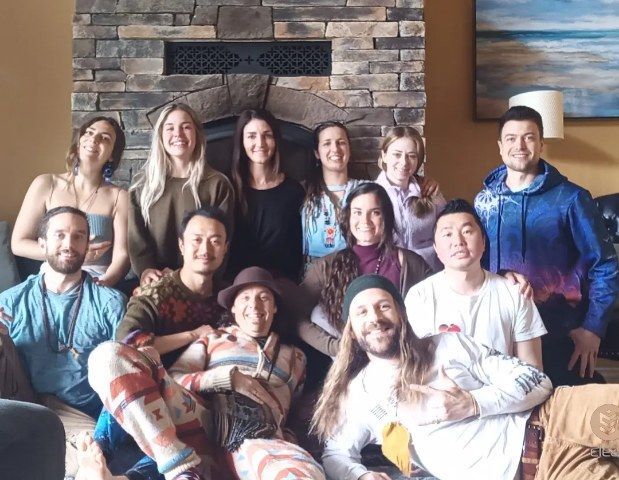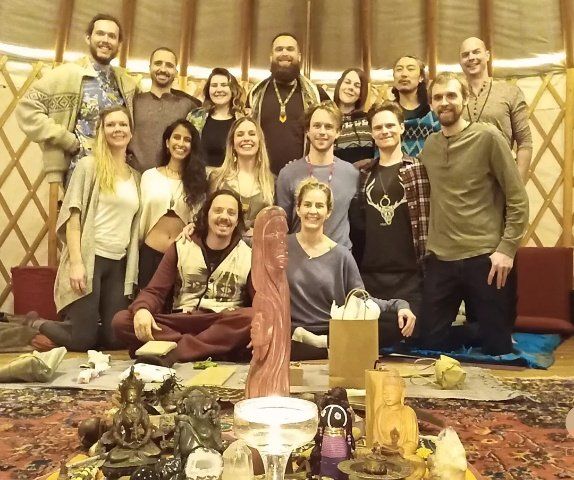It's Not Just Crazy Rich Asians - the First Generation Crisis
Andrew Lee • November 11, 2018
It's not just the crazy rich Asians - it happens to all immigrant families

Originally published November, 2018
One deeply inherent bias I learned I had, which was particularly hard to get over, was the bias that Asians just care about education, money and status.
Growing up in a town about an hour north of Toronto, I was removed enough from the diversity of Toronto to where I was one of only maybe four Canadian born Chinese (CBC) people in high school. To me, it seemed all my Caucasian peers' parents seemed cool while mine weren't.
Theirs would say "I love you" and be positive and encouraging. Theirs allowed them to live their lives. Mine drilled me like a sargeant on getting perfect grades so I can go to university and make a lot of money afterward. And they didn't let me go out because the outside world was "dangerous."
When I began connecting with friends on these deeper matters and sharing my own past, I was surprised how many of my CBC peers had similar upbringings as mine, and turned out similarly to me. They also had strict unemotional parents, enforcing a culture valuing education and work, who sheltered them as adolescents, leading to social awkwardness and lack of self esteem. This led me to forming and reinforcing many negative stereotypes about my ethnic peers.
But over time as I became better at seeing through my own biases, I realized that many other friends, not just CBC's, had the same issues. I began noticing another pattern...
It's not just the crazy rich Asians - it happens to all immigrant families, no matter the ethnicity or race.
See, immigrants coming to Canada usually come from poorer and more traumatic situations. You know the classic, "I arrived in America with 20 dollars to my name" story. Already toughened by past experiences, immigrants must continue to claw and grind their way to become established in their new country. Once they do, values such as hard work, education, career, and the riches attained as a result, become ingrained in them. Negative outlooks on life from their past experiences are often retained, instilling traits such as cynicism and fear.
When they have children, referred to as the first generation, they try naturally to infuse them with the same values and traits. Unfortunately, this to a large degree doesn't work, because the values and traits they honed from their origin country are in direct conflict with the country their children grow up in.
The children of immigrants get to move up on Maslow's hierarchy. Not having to worry about food and shelter, they graduate to higher level needs such as belonging and self actualization.
What brought immigrants success and happiness in Canada, hard work and material comfort, won't also work for their children. Their strict parenting style similarly doesn't align with the more lenient style of Canadian parenting - the tensions arisen from this produce a first generation of Canadians, like myself, confused and traumatized.
Now I have to admit, this first generation crisis is probably still a bit more extreme with Chinese Canadian families.
Here's one grand observation, hope you can see the link: the Chinese civilization has had one of the steadiest empires in the past millenia. The dynasties of the past, up to the current communist government, have learned to wield excessive power over its people, creating a culture of submission, collectivism and hard work. That to me is why Chinese people, young and old, tend to be quiet, overly polite and socially awkward.
The crazy rich Asian phenomenon is also exacerbated by the fact that fortune plays an emphasized role in Chinese culture. And China has in recent decades become stinking rich and many of their rich citizens move to cities like Vancouver or Toronto. Toronto alone is home to over 1 million ethnic Chinese!
Many rich Asians just stay in China and send their spoiled kids to these cities for university, giving them Lamborghinis to drive! I once had a conversation with someone who worked at a luxury car wash in Toronto - the vast majority of clients at this car wash were Asian boys. These rich kids form the extreme end of the stereotype of the crazy rich Asians!
Okay, I'm getting carried away a bit... the point is that the first generation crisis exists across many different cultures within Canada. It's not just the crazy rich Asians! But it sort of is, too...
I hope I don't sound bitter about my upbringing - in the end, I'm definitely happy to be born Canadian. And while I struggled with cultural tension growing up, I eventually escaped in a big way and have largely come to acceptance about my past and my culture.
The sooner that my first generation peers, whether it is in Canada or any other developed nation, become aware of this, the sooner we can resolve these cultural tensions, figure out what balance of values we want to live by, and forgive our parents and accept them for their differences.

"People shouldn't be afraid of their governments. Governments should be afraid of their people." This phrase from my favourite movie alludes to the fact that the people should be the prevailing force that keeps their government in check. At some point a government becomes too big and starts looking after its own interests, no longer serving the needs of the people it was created for. Governments have long been the dominant organizations of the 20th century. In the 21st century technology corporations are eclipsing governments. Rapidly advancing technology has increased not only the influence of these national and multinational organizations, but their ability to monopolize even more power. When organizations reach a certain size, just like governments, they no longer act to serve the people, but their own interests. T here are plenty of examples of this throughout history. Facebook was recently exposed, when a former employee and whistleblower testified to the US Senate that the company repeatedly faced conflict of interests over profits versus reducing division, and always put profit first. Polarization for Profit How was FB able to do this? Typically if a company was exposed for not serving its customers' best interests, customers would take their business elsewhere. But with social media, there is almost nowhere else to go. FB has cornered the market, and intentionally bought or squashed competitors to cement its dominance in the space. Undermining free market principles has allowed FB to serve its own interests over the interests of its customers. They are maximizing their profit by allowing dishonest science to go viral, and allowing divide and conquer to occur. Facebook isn't the only big tech company guilty of this activity. Google, Microsoft and Apple have been sued for antitrust actions . And big tech isn't the only corporate sector valuing profit over people. Nearly all the largest corporations are guilty of some sort of fraudulent behavior, whether it's big oil, big pharma, big agriculture or big food. Governments are not only complicit in allowing corporate abuse to occur, they are often hand-in-hand with corporations and mainstream media. I've seen this first-hand with my experience at the Fairy Creek Blockade , the largest act of civil disobedience in Canadian history, preventing old growth logging on Vancouver Island. On the ground at Fairy Creek I've witnessed a coming together of some of the most beautiful and inspiring humans, passionately protecting the environment against corrupt political leader Premier Horgan, who went back on his word to stop old growth logging. In the news, however, there's little to no coverage of the events, and what coverage there is, is highly skewed against the protesters. It was here where my direct experience caused me to lose faith in mainstream media, and to see how they are under the sway of existing power structures. To see how they would take certain photos or video snippets and portray them in a different light, to make protesters appear irresponsible or incompetent. Or to portray the Premier's words and actions as if he was resolving the issue, when in reality he was deceiving the public. The Psychology of Polarization So why, on a psychological level, is polarization catalyzed by social media? It's quite simple really. Technology has eroded the quality of communication between people. There is a richness to face-to-face communication that cannot be conveyed. Studies have shown that 90% of communication is nonverbal (body language and voice tone), meaning only 10% of communication is through words alone. Words alone are such a poor quality of communication that they do not properly express the author's full meaning, and are too easily misinterpreted by the reader due to their own biases. This is especially true with words on a screen, transmitted through instant messages or social media posts. And yet it has become the most dominant form of communication due to its convenience. How many times did you misinterpret a text or a social media post, and respond with a critical comment? How often did this needlessly escalate into a full blown conflict? It happened quite a bit in the past with me, and I eventually learned to resolve disagreements with a phone call or meeting face-to-face. Unfortunately, too many people rely on texting because they have gotten too used to it and have lost their ability and initiative to resolve conflicts in person. Humans are still wired for face-to-face communication, and this is particularly necessary when resolving conflicts. Today, we are creating conflicts through texting and comments on social media posts. This is a recipe for disaster, a vicious cycle of misinterpretation where one comment blows up into massive conflicts. And, as mentioned in the previous section, Facebook is aware that this is happening on their platform, and instead of working to resolve it, they are exacerbating the problem. But the sole goal, the very existence of a corporation, is profit. Any non-financial consequence is a mere externality. Bridging the Communication Gap Seeing the bigger picture isn't easy. It takes a trauma-informed understanding of how the world got this way, in order to move forward with nonviolent solutions that bring people together, not further apart. The majority of people are living in fear. Their nervous systems are constantly in hypervigilance, meaning they are on edge, ready to engage in fight or flight. Showing them disagreeable information will only trigger their fight or flight, and potentially start a vicious cycle of arguing. People living in this way carry a narrowed perspective, focusing only on survival, and are thus unable to see the bigger picture. In order to engage with people on the other side of the coin, social media is not the answer because its low quality medium of communication creates further division. What's needed is the exact opposite . The one antidote in a time of such extreme polarization and division is face-to-face conversations with those we disagree with. This is also exactly what is being discouraged by the pandemic. Mask mandates have undermined our ability to see and read facial gestures. Closures of small businesses and gathering places have prevented the opportunities for holding the gatherings and face-to-face conversations needed to bridge this gap. It is critical to be able to spend time with people we don't know in order to break down each other's walls, and eventually feel safe sharing information without feeling antagonized. The Way Forward More and more people out there are realizing deep down that not all is as it seems. If I have a plea to you, it is, against all odds, to take the courageous step to gather with people and have face-to-face conversations again. If you can do this with people you already feel safe with and who share your views, then do this with people who you don't agree with. Start by smiling at strangers outdoors. Engage in friendly conversation. Unmasked people have been framed as antagonists. If you are brave enough to go into indoor businesses without masks, smiling at people completely disarms their hypervigilance. This is exactly what I have been doing, and the vast majority of my interactions have been positive or innocuous. I've had people smile back at me and acknowledge my bravery, and others follow my lead and take off their mask. Unmasked and smiling, you are a shining light, a warrior. You are an inspiration to others who sense something is wrong but are too afraid to act out against the narrative. Even if you have confrontations, smiling and holding your head high, proves to the confronters that you are a compassionate individual. Not only are you disarming the narrative, but you are disarming nervous systems. I certainly have had a few business owners ask me to put on a mask or leave, and obliged their concerns with a smile. If conflicts occur through your social media platforms, engage directly with others through phone calls or voice messages. This has been my most effective tool for deescalating conflicts. However, I choose phone calls and voice messages over texting more and more often these days in general, because my friends and I value the richness of expressing in voice and hearing each other's voices. Polarization is one of the greatest invisible threats to society, preventing people from uniting in action against tangible and urgent threats. It is up to all of us individually to overcome these barriers, through gathering and having face-to-face conversations again, with those we do and do not share views with.









